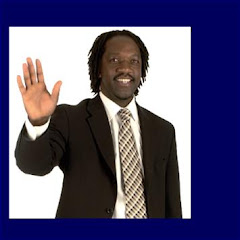When doctors amputated her right arm that was crushed by jagged rubble during Haiti's 2010 earthquake, Marjorie Benoit joined the ranks of Haiti's outcasts: the blind, the deaf and those missing limbs writes Trenton Daniels for Associated Press (05/03/12).
But then something unexpected happened for the 33-year-old mother of four as she faced personal and economic devastation. She found a welcoming home.
While the 1.3 million people displaced by the quake ended up in post-apocalyptic-like tent cities, a sliver of the homeless disabled population, including Benoit, landed in the closest thing to a model community. They moved into neat plywood shelters along tidy gravel lanes in a settlement designed to house them. They formed a close-knit colony of sorts with ramps for their wheelchairs made out of discarded pool furniture and solar-powered lights to help the deaf communicate with sign language.
The rare respite for the estimated 500-plus people living here, however, will soon end as the government moves to reclaim the land, and, like Haiti's piecemeal reconstruction effort, there isn't much of a plan to house them once they leave — maybe some money for rent and a little extra cash. An alternative site for some of the settlement's deaf residents is not yet completed.
"I have strength by living with other people who are handicapped," said Benoit, who said she's still learning how to use her left hand so she can resume work as a street merchant. "I want everyone to move together wherever we go."
Life has never been easy for the disabled in one of the world's poorest countries. The blind and deaf and amputated have long shouldered a social stigma, their disabilities dismissed as the product of a hex, and few have access to physical therapy or social services. It's no accident that Haiti's disabled make up the poorest part of its population.
Inside the settlement's enclosing chain-linked fence, the residents say they no longer endure the long stares for losing their vision, hearing or a limb.
Claudius Joseph, a blind 25-year-old student, says his teachers believe he can't learn because he can't see. Children, he says, are afraid to touch him.
"I feel normal here because there are other people who are handicapped just like me," Joseph said one evening as his cane tapped the gravel in front of him.
The camp, near Port-au-Prince's international airport, is called "La Piste" because of an abandoned military airstrip across the street. It was set up by the International Federation for the Red Cross, which built 368 shelters for the hearing and speech impaired and others with disabilities. The first families moved in Jan. 7, 2011, days before the anniversary of the earthquake, and each received $150 to help settle in.
Its current residents are a mix of people disabled by traumas or infections caused by the quake and those whose conditions preceded it.
The Red Cross says it signed an agreement with the previous administration of President Rene Preval to use the land until January 2013. Officials with President Michel Martelly's government say they want the land back and the residents need to leave.
"The land is not theirs and the owner wants it back," said Gerald Oriol Jr., Secretary of State for the Integration of Persons with Disabilities. He declined to say who owned the land and referred questions to a foreign charity worker helping the deaf residents. "Within six to nine months they should move out."
When two Associated Press journalists spoke to roughly a dozen La Piste residents about what they would do if they were forced to leave the settlement, some had not heard the news and a few began to shriek.Alix Baptiste, a slender 37-year-old mute man, pulled the lone sign interpreter by the arm and approached the reporters.
He had the interpreter say: "We'll protest because we have no place else to go."
Two U.S. religious groups are building a new site about 18 miles (30 kilometers) northwest Port-au-Prince to house some of La Piste's residents, but a good portion will be left behind and many don't want to leave the camp.
Mission of Hope of Fort Myers, Florida, and 410 Bridge, Inc., of Alpharetta, Georgia, are building 500 houses over the next two years in the town of Leveque. A hundred and sixty of those homes are reserved for deaf families in La Piste, said Austin Holmes of Mission of Hope Haiti. Fifty families have already moved in.
But the fate of those left behind remains uncertain.
"That is the big question mark," said Kyle Reschke, Haiti's project director for 410 Bridge. "We're trying our best to take away that question mark."
And even for those at La Piste who have housing promised them, many ask where will they go if they are evicted in the coming months before their new homes are completed?
Some at La Piste, like 58-year-old Fecilia Joseph, will "go with the wind" if it takes them to Leveque.
But others don't want to leave. That's because they sew clothes in a factory down the street or take classes in downtown Port-au-Prince. Their social networks are in Haiti's capital.
Red Cross shelter coordinator James Bellamy said that if the government seizes the land before January the residents would be eligible for a rental subsidy for $500 for one year and another $500 to help out. They can also enroll in courses to learn skills in carpentry, sewing and masonry.
"We'll be talking to the government and households down there to see if we can advocate for any long-term solutions," Bellamy said. "There's no plan for them to go anywhere."
The Martelly administration and foreign aid groups have cleared out several camps in recent months and moved the residents into homes by paying their rent for a year. But that's only 5 percent of the half million people stuck in the gloomy, flood-prone camps.
On a recent afternoon at La Piste, quake amputees on crutches kicked around a soccer ball on a dusty field.
Residents say they're grateful for the site despite fears that it will close.
"Thank God we live well; we're not fighting," said Mason Egene, a 63-year-old who's paralyzed in the right leg. "We have all kinds of problems but we don't get wet in the rain."
Monday, 5 March 2012
Subscribe to:
Post Comments (Atom)






No comments:
Post a Comment